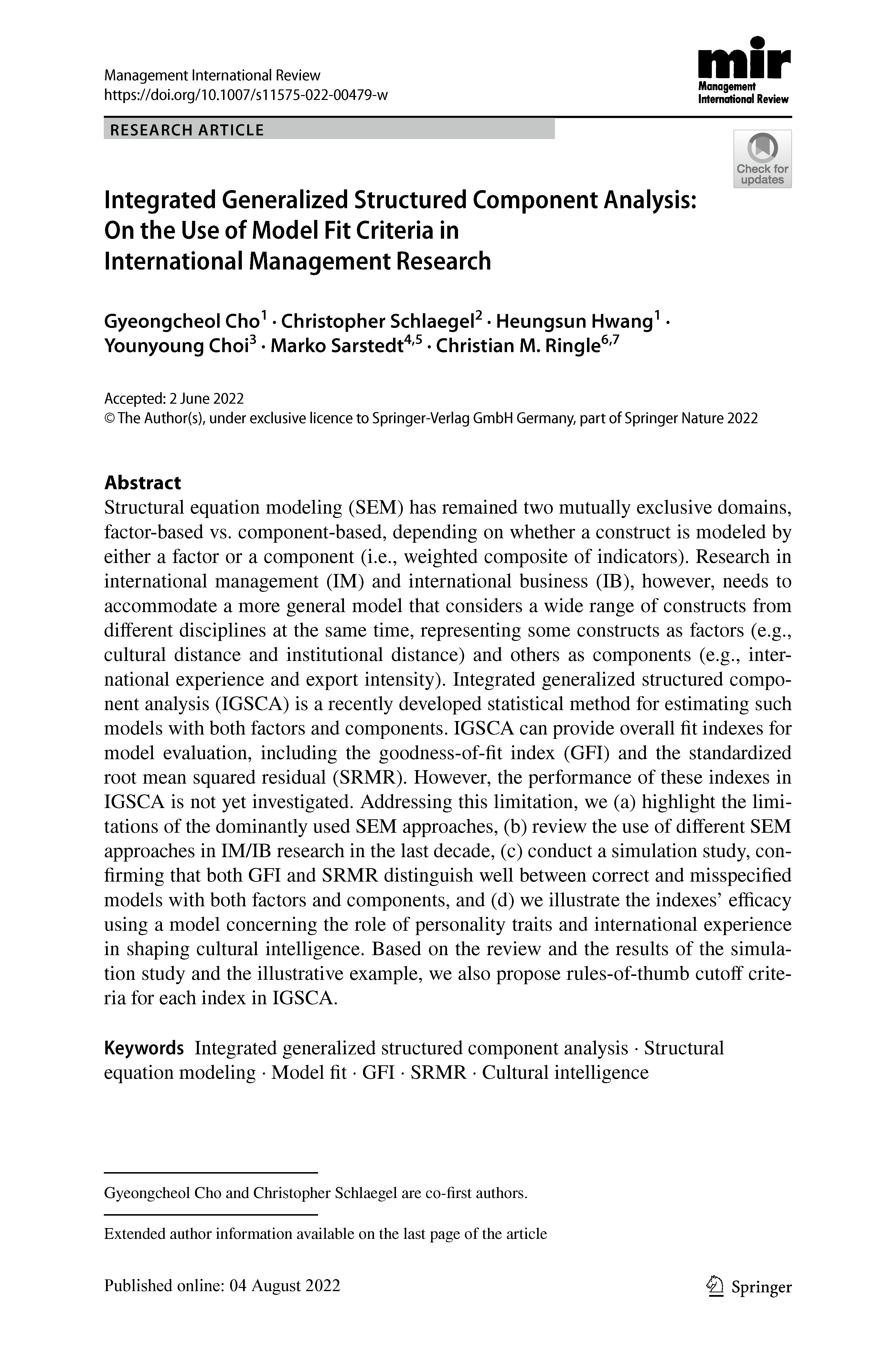|
|
|
Cho, G., Schlaegel, C., Hwang, H., Choi, Y., Sarstedt, M. & Ringle, C.M. (2022) Management International Review [Core Economics, Q2]
Autor:
Ovidiu Ioan Moisescu
Publicat:
11 August 2022
Cho, G., Schlaegel, C., Hwang, H., Choi, Y., Sarstedt, M. & Ringle, C.M. (2022) Integrated generalized structured component analysis: On the use of model fit criteria in international management research. Management International Review, 62, 569-609.
DOI: https://doi.org/10.1007/s11575-022-00479-w
✓ Publisher: Spinger
✓ Categories: Management
✓ Article Influence Score (AIS): 1.117 (2022) / Q2
Abstract: Structural equation modeling (SEM) has remained two mutually exclusive domains, factor-based vs. component-based, depending on whether a construct is modeled by either a factor or a component (i.e., weighted composite of indicators). Research in international management (IM) and international business (IB), however, needs to accommodate a more general model that considers a wide range of constructs from different disciplines at the same time, representing some constructs as factors (e.g., cultural distance and institutional distance) and others as components (e.g., international experience and export intensity). Integrated generalized structured component analysis (IGSCA) is a recently developed statistical method for estimating such models with both factors and components. IGSCA can provide overall fit indexes for model evaluation, including the goodness-of-fit index (GFI) and the standardized root mean squared residual (SRMR). However, the performance of these indexes in IGSCA is not yet investigated. Addressing this limitation, we (a) highlight the limitations of the dominantly used SEM approaches, (b) review the use of different SEM approaches in IM/IB research in the last decade, (c) conduct a simulation study, confirming that both GFI and SRMR distinguish well between correct and misspecified models with both factors and components, and (d) we illustrate the indexes’ efficacy using a model concerning the role of personality traits and international experience in shaping cultural intelligence. based on the review and the results of the simulation study and the illustrative example, we also propose rules-of-thumb cutoff criteria for each index in IGSCA.

inapoi la stiri  vezi evenimentele
vezi evenimentele  home
home 
|